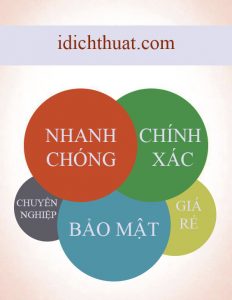Literature or books are indispensable documents in daily life. Even today, when society has developed with advanced technologies, people finding books, newspapers, handwritten letters ... is still a hobby, a passion of many people.
LEARNING TRANSLATION – BOOK TRANSLATION
Literature is a type of composition in which the problems of social and human life are presented. The creative mode of literature is through fiction, content expression, and themes expressed through language. The term literature sometimes has the same meaning as literature.
Literature has many different genres such as novels, short stories, poems, scripts, critical theories, etc. Domestic and foreign literature has a long history of development, creating an extremely wide knowledge base. big. Not only that, with each passing moment, we receive new brainchild from authors around the world who update the literature.
Literary translation – professional book translation
Therefore, regardless of the era, the translation of literary documents or books has always been of interest to everyone. Literary language does not necessarily follow a certain sequence, meaning is not only based on the words in the work, but also hidden through artistic methods that require translators to have a rich vocabulary. the creativity and flexible combination to make the sentences more elaborate while still keeping the author's ideas.
Literary material has many different genres such as:
-
Works of short stories, literary theory.
-
Works of short stories, novels, poems, prose...
-
Book materials from domestic sources and sources from libraries around the world.
-
Magazines, publications, domestic and foreign literary newspapers.
-
Videos, clips analyzing, evaluating, commenting on literary works.
-
Manuscript documents of books, newspapers, stories, novels.
Come to Idichthuat, you can be assured of the translation quality as well as the service style of a team of professional consultants. As one of the leading translation companies, we always do our best so that our customers can experience the best services without fail. Idichthuat providing. The team of translators are experienced language experts from universities specializing in translation, interpretation and foreign languages. We only provide the best translation / document writing solution, you can be assured of the quality of the product, the speed of receiving the article, and can confidently promote a long-term partnership.
See Further Articles:
- TRANSLATION OF INSURANCE DOCUMENTS
- PROFESSIONAL TRANSLATION OF TRAVEL DOCUMENTS
- TRANSLATION OF CULTURE – HISTORY DOCUMENTS
Contact Idichthuat today to get the cheapest service quotation with its highest quality!
Translation company Idichthuat

Nguyen Trung Khang - Talented interpreter and translator, passionate about translation
Nguyen Trung Khang is a talented interpreter and translator, with many years of experience in the field of translation and linguistics. He graduated from Ho Chi Minh City University of Education, majoring in Linguistics in 2015.
After graduating, Mr. Khang participated in a professional interpretation and interpretation training course at the University of Foreign Languages - Hanoi National University. He achieved a high-level certificate in interpreting and interpreting, and was also awarded a master's degree in linguistics.

